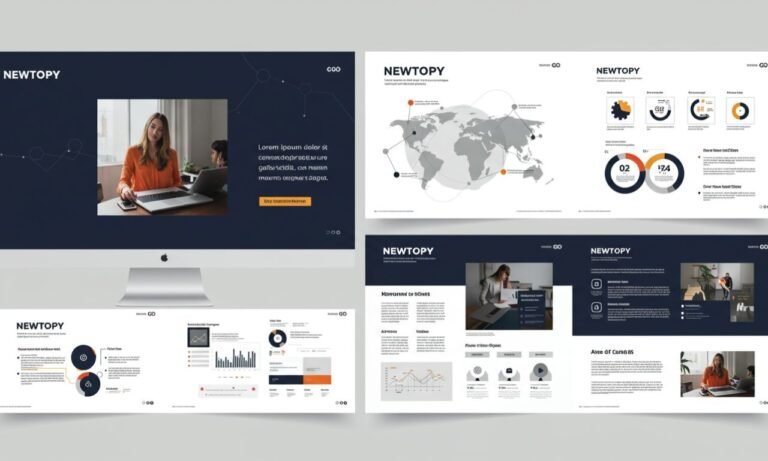What is EI? Understanding Emotional Intelligence
Have you ever wondered why some people seem to handle stress better than others? Or why certain individuals can connect with anyone they meet, while others struggle in social situations? The answer often lies in something called Emotional Intelligence, or EI for short.
What Exactly is Emotional Intelligence?
Think of Emotional Intelligence as your ability to understand and manage emotions – both your own and those of others. It’s like having a superpower that helps you navigate through life’s ups and downs with greater ease and success.
Unlike your IQ, which measures how smart you are with facts and figures, EI measures how smart you are with feelings. And here’s the exciting part: while your IQ stays pretty much the same throughout your life, you can actually improve your EI with practice and awareness.
The 5 Pillars of Emotional Intelligence
Emotional Intelligence stands on four main pillars, each equally important:
Self-Awareness
This is your ability to recognize your own emotions as they happen. When you feel frustrated during a traffic jam, self-aware people notice that feeling immediately. They understand what triggers their emotions and how these feelings affect their thoughts and actions.
Self-Management
Once you know what you’re feeling, can you control it? Self-management is about staying calm under pressure, bouncing back from setbacks, and keeping your emotions from overwhelming you. It’s the difference between exploding in anger and taking a deep breath to think clearly.
Social Awareness
This involves reading other people’s emotions accurately. Can you tell when your friend is upset even when they say they’re fine? Social awareness helps you pick up on non-verbal cues like body language, tone of voice, and facial expressions.
Relationship Management
The fourth pillar is using your emotional knowledge to build strong, healthy relationships. This includes communicating clearly, resolving conflicts peacefully, and inspiring others to do their best.
Empathy
The fifth pillar goes beyond just recognizing someone else’s feelings — it’s about truly understanding and sharing them. Empathy allows you to connect on a deeper level, respond with compassion, and offer meaningful support. It’s the foundation for trust and emotional connection in both personal and professional relationships.
Why Does EI Matter So Much?
Research shows that people with high Emotional Intelligence tend to be more successful in both their personal and professional lives. Here’s why:
Better Relationships When you understand emotions well, you connect better with family, friends, and coworkers. You know how to comfort someone who’s sad, celebrate with someone who’s excited, and work through disagreements without damaging relationships.
Improved Performance at Work Employers love hiring people with high EI because they work well in teams, handle stress better, and can lead others effectively. Studies show that 90% of top performers have high Emotional Intelligence.
Better Mental Health Understanding your emotions helps you manage stress, anxiety, and depression more effectively. You’re less likely to be overwhelmed by negative feelings because you know how to process and handle them.
Greater Life Satisfaction People with high EI tend to be happier overall. They make better decisions, have stronger relationships, and feel more in control of their lives.
Signs of High Emotional Intelligence
How can you tell if someone has a high EI? Look for these traits:
- They stay calm during stressful situations
- They listen more than they talk
- They admit when they’re wrong and learn from mistakes
- They can read the mood of a room when they walk in
- They handle criticism well without getting defensive
- They’re genuinely interested in other people’s feelings
- They know their strengths and weaknesses
- They can motivate themselves and others
How to Boost Your Emotional Intelligence
The good news is that you can develop your EI at any age. Here are some practical ways to get started:
Practice Mindfulness Take a few minutes each day to check in with yourself. How are you feeling right now? What emotions have you experienced today? This simple practice builds self-awareness.
Keep an Emotion Journal Write down your feelings and what triggered them. Over time, you’ll start to see patterns and understand yourself better.
Ask for Feedback: Ask trusted friends or family members how you come across in different situations. Sometimes others see things about us that we miss.
Practice Active Listening When talking with others, focus completely on what they’re saying rather than planning your response. Pay attention to their tone and body language too.
Learn to Pause Before reacting to strong emotions, take a deep breath and count to ten. This simple pause can prevent you from saying or doing something you’ll regret.
The Bottom Line
Emotional Intelligence isn’t just a nice-to-have skill – it’s essential for living a fulfilling life. Whether you’re trying to advance in your career, improve your relationships, or simply feel better about yourself, developing your EI will help you get there.
Remember, becoming emotionally intelligent is a journey, not a destination. Start small, be patient with yourself, and celebrate your progress along the way. Your future self will thank you for investing in this powerful life skill today.
I support individuals in building deeper self-understanding and more meaningful connections by offering a one-of-a-kind sticker club, impactful courses, and a guided journal that encourages personal growth and emotional well-being.







